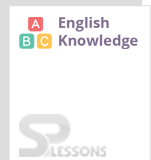 Introduction
Introduction
English Knowledge is an important section in the employment-related competitive exams in India. In particular, exams like UPSC and other bank-related employment exams have English Language questions along with Reasoning and Quantitative Aptitude. The English Language section primarily has questions related to Reading Comprehension, Cloze Test, Fill in the Blanks, Error Spotting, Grammar, Sentence Improvement, etc. This article presents the UPSC NDA and NA Mains General English Quiz 4 sample questions and answers. UPSC NDA and NA Mains Written examination is scheduled to be conducted on [latex]{17}^{th}[/latex] November, 2019.
 Quiz
Quiz
Direction (1-5): A passage is given with 5 questions following it. Read the passage carefully and choose the best answer to each question out of the four alternatives.
“Nobody knows my name” is the title of one of James Baldwin’s celebrated books. Who knows the name of the old man sitting amidst ruins pondering over his hubble-bubble? We do not. It does not matter. He is there like the North Pole, the Everest, and the Alps but with one difference. The North Pole, the Everest, and Alps will be there when he is not there anymore. Can we really say this? “Dust thou art to dust returned” was not spoken of the soul. We do not know whether the old man’s soul will go marching on like John Brown’s. While his body lies moldering in the grave or becomes ash driven by the wind or is immersed in water, such speculation is hazardous. A soul’s trip can take one to the treacherous shoals of metaphysics where there is no “yes” or “no”. “Who am I?” asked Tagore of the rising sun in the first dawn of his life, he received no answer. “Who am I?” he asked the setting sun in the last twilight of his life. He received no answer.
We are no more on solid ground with dust which we can feel in our hands, scatter to the wind and wet with water to turn it into the mud. For this much is sure, that at the end, when life’s ceaseless labor grinds to a halt and man meet death, the brother of sleep, his body buried or burnt, becomes dust. In the form of dust he lives, inanimate yet in contact with the animate. He settles on files in endless government almirahs, on manuscripts written and not published on all shelves, on faces and hands. He becomes ubiquitous all-pervasive, sometimes sneaking even into hermetically sealed chambers.
Q1. What is the difference between the old man and the North Pole, the Everest and the Alps?
-
A. He ponders over his hubble—bubble while they don’t.
B. They are known to all while he is known to none.
C. They remain while he will soon become dust.
D. They are not as old as he.
-
A. The soul also dies with the body.
B. The soul continues to live after the body is dead.
C. The soul certainly becomes dust after death.
D. It is dangerous to guess.
-
A. The rising sun told Tagore who he was.
B. The rising sun did not tell Tagore who he was.
C. The rising sun advised Tagore to ask no questions.
D. The rising sun told Tagore that he would become dust.
-
A. He disappears from the world forever.
B. He appears in the form of man again.
C. He meets death again.
D. He becomes ubiquitous all pervasive.
-
A. Simile
B. Metaphor
C. Oxymoron
D. Irony
Direction (1-3): In the following questions, sentences are given with blanks to be filed in with an appropriate word(s). Four alternatives are suggested for each question. Choose the correct alternative out of the four as your answer.
Q1. You will be __________ people who are every bit as good as you are.
-
A. stemming from
B. striking down
C. pitted against
D. dwelling on
-
A. drop in an ocean
B. the drop in an ocean
C. a drop in the ocean
D. a drop in ocean
-
A. chains
B. doors
C. hinds
D. horns
-
A. deduce
B. rejection
C. scruple
D. vacillate
-
A. dulcet
B. falsehood
C. honesty
D. None of these
Direction (1-3): Improve the bracketed part of the sentence.
Q1. You must (accustom yourself with) new ideas.
-
A. accustomed with
B. accustom to
C. accustom yourself to
D. No Improvement
-
A. was hard put to
B. was put to it hard
C. was hardly put to
D. No Improvement
-
A. give in
B. get by
C. brush up
D. No Improvement
-
A. A
B. B
C. C
D. D
-
A. A
B. B
C. C
D. D





